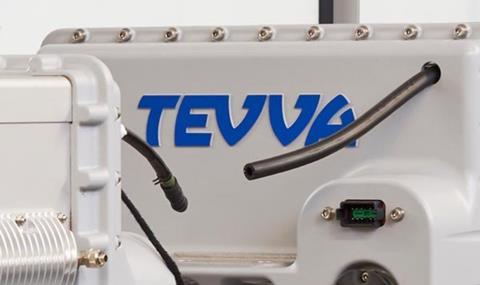
UK-based electric truck manufacturer Tevva Motors has teamed up with energy firm Vattenfall Network Solutions to help operators switch to a zero-emission fleet.
The partnership is working together to create an energy infrastructure to Tevva’s long-range electric vehicles.
Tevva, which produces trucks ranging from 7.5 tonne to 19 tonnes, uses grid electricity as its main energy source and integrated hydrogen fuel-cells to extend the range of their trucks.
Vattenfall currently operates more than 22,000 electric vehicle charging points in Sweden, the Netherlands, Germany and Norway.
Its goal is to offer all customers climate smart energy and the ability to dispose of the need for fossil fuels within one generation.
Read more
- Electric truck manufacturer Tevva on hunt for 40 specialist engineers
- Savona Foodservice signs up to Tevva ‘Electrify’ campaign
- CEVA Logistics trials London electric truck and signs up to Tevva ‘electrify’ initiative
Vattenfall Network Solutions “Power-as-a-Service” model provides businesses wishing to switch to a 100% zero emission vehicle fleet with the energy infrastructure as a service, rather than an expensive and risky asset for businesses to invest in, build, own and maintain.
Maria Lindberg, director of heavy transport at Vattenfall Network Solutions, said: “We are delighted to be working with Tevva to enable businesses to transition to a 100% zero emission vehicle fleet and reduce the carbon emissions from their operations. In the race to net-zero, it’s no longer a question of if, but when transport will be electrified.
"At Vattenfall, we offer our customers climate smart solutions to help them on this journey, in line with our goal of enabling fossil fuel-free living within one generation. Our ‘Power-as-a-Service’ model makes those solutions far more accessible, removing the risk and significant capital investment.”
Asher Bennett, founder and chief executive of Tevva, said: “Our collaboration with Vattenfall means that, as well as vehicle expertise, we will also be able to provide our customers with electricity and hydrogen infrastructure and sustainably sourced supply, enabling them to break ground on zero emission goals in an affordable way. We believe this approach is truly the future for businesses looking to move to an all-zero-emission fleet.”













